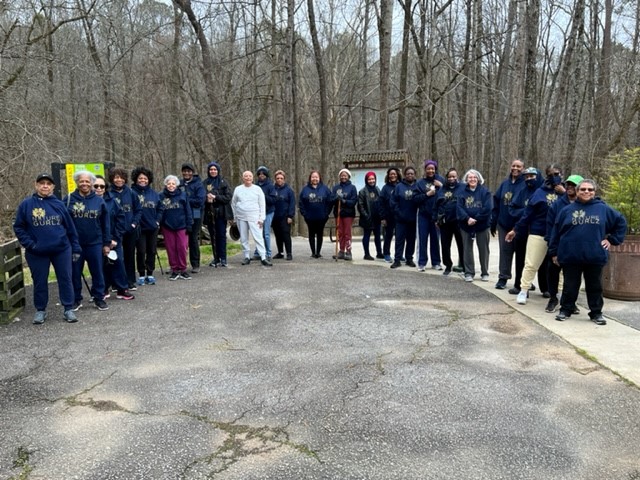According to the University of Michigan’s National Poll on Healthy Aging, during the pandemic, 19% of adults between 50-80 years old have experienced depression and sadness.
Results from the poll also suggest at least 28% of seniors say they feel more worried and anxious.
In addition, according to the Centers for Disease Control and Prevention, social isolation and loneliness in older adults are serious public health risks, putting seniors at risk for developing dementia and other serious medical conditions.
In an effort to combat social isolation and protect their health, a group of senior women in Southwest Atlanta have been holding each other accountable by prioritizing their physical and mental health through daily exercise.
Cecilia Houston-Torrence, the founder and coordinator of the Nature Gurlz, told “Closer Look” producer LaShawn Hudson that she had an anxiety attack in April of 2020 while watching the news and decided to take action by getting outside, organically forming the Nature Gurlz group.
“The next day there was the three people, next day four, five, six, we’re up to 60 people now,” said Houston-Torrence.
For nearly two years, the Nature Gurlz, who range in age from their early 60s to mid-80s, have been meeting daily to walk between two to three miles at the Cascade Springs Nature Preserve.
“We have the strollers, they walk very slow,” explained Nature Gurlz member Merchuria Williams, who is an ordained minister and often leads the group in prayer ahead of each hike. “We have the explorers, they walk on the flat at the pace they want to walk, and then we have the mountaineers, we go to the mountain top.”
Some of the women have always maintained a healthy lifestyle, while others are breast cancer survivors, have arthritis, hypertension, diabetes and other chronic illnesses.
Dr. Charlotte Grayson, an internist at the Georgia Physicians Group of Fayetteville, who sees adult patients from the age of 18 to the end of life, says something as simple as walking is crucial for those in the Nature Gurlz age group.
“The pandemic has been really isolating for patients of all ages, but especially for our elderly patients, who in general have been very afraid of contracting the coronavirus or ending up in the hospital, and so they have been isolating themselves even more,” said Grayson. “And because of the isolation, we are seeing a lot of anxiety, we are starting to see a good bit of depression and it’s starting to affect patients physically.”
To listen to the full conversation, click the audio player.
This interview was conducted with the support of a journalism fellowship from The Gerontological Society of America, The Journalists Network on Generations and The Commonwealth Fund.








